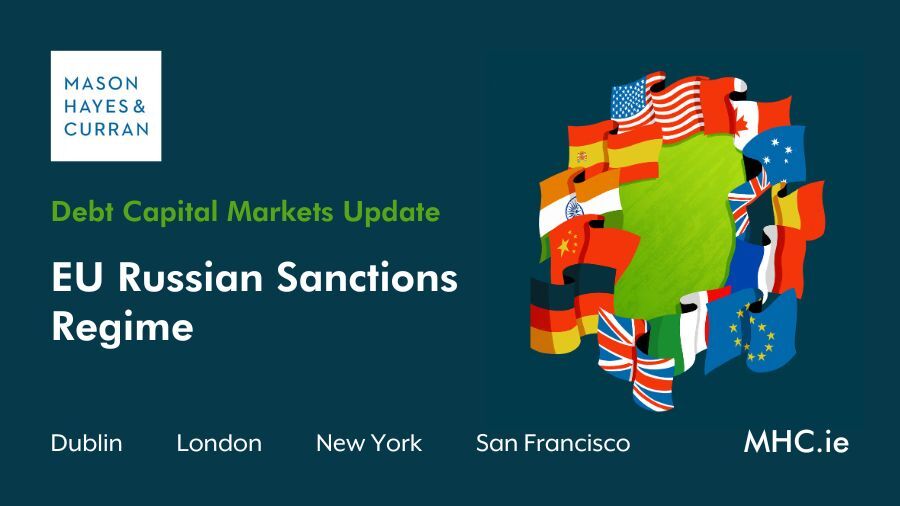EU Russian Sanctions Regime

The EU’s Russian sanctions regime has been constantly evolving and adapting since February 2022. A key element of the sanctions framework is Regulation 833/2014, which restricts trade in a long list of goods and services - including specified ‘business services’ - between EU persons (anywhere in the world) and specified Russian entities/persons. Our Debt Capital Markets & Listing team provides an update.
The EU's 14th Russia sanctions package, introduced on 24 June 2024, includes a brief reprieve for EU persons that provide business services to Russian subsidiaries of EU, EEA, and Swiss companies. This reprieve also applies to subsidiaries of companies established in partner countries such as the US and the UK.
Specifically, the EU extended until 30 September, the availability of the ‘Russian subsidiaries’ exemption under Article 5n(7) of Regulation 833/2014. Previously the exemption was scheduled to cease on 20 June.
From the date of its cessation, EU persons providing Article 5n services to Russian subsidiaries will need to apply for a derogation from their sanctions regulator in order to be able to continue doing so. The extension has been well received but, as we outline below, the reprieve is short term.
The EU’s Russian sanctions regime has been constantly evolving since February 2022. The regime comprises a number of EU regulations, one of which is Regulation 833/2014. This regulation restricts trade in specified goods and services by EU person, anywhere in the world, with specified Russian entities/persons.
The regulation covers a wide range of goods and service. This includes includes outright military goods, to dual use technology, to specified luxury goods and financial and legal services. If you are an EU person and are trading with Russian entities/persons, you need to check this regulation to see if the goods/services/persons you are trading in/with are affected.
One of the aspects of Regulation 833/2014 which we have seen queried the most is Article 5n. This article restricts the direct and indirect provision of a wide range of business services to the Russian Government and Russian legal persons, entities or bodies. The restricted services include:
- Accounting, audit and tax consulting services, business and management consulting, and PR services
- Architectural, engineering, legal advisory and IT consultancy services
- Market research and opinion polling, technical testing and analysis, and advertising services, and
- The provision of certain software for the management of enterprises and for industrial design and manufacturing
The restriction is not outright. Article 5n also includes exemptions and grounds for derogation, in specified circumstances. An exemption applies automatically if its conditions are met, whereas a derogation has to be applied for, on the basis of its stated grounds, to your local EU sanctions regulator. The regulator then decides whether to grant the derogation or not. In Ireland, the relevant sanctions regulator is the Department of Enterprise, Trade and Employment.
An Article 5n exemption of note related to the provision by EU persons of certain Article 5n services to Russian subsidiaries. However, in December 2023, the EU announced that this exemption would cease to be available after 20 June. From that point on, EU persons would have to apply to their regulator for a derogation to continue providing these services to Russian subsidiaries. Then, in June, the deadline was extended to 30 September.
The initial deadline of 20 June initiated urgent action by a number of EU persons which had been relying on the Russian subsidiaries exemption. So, it was with relief that the deadline was extended to 30 September. However, 30 September is fast approaching. As such, if you are an EU person providing business services to a Russian subsidiary, it is imperative to consider whether these activities are caught by Article 5n and, if so, whether you need a derogation in place from 30 September.
For more information and expert advice in navigating the ever-evolving regulations, contact a member of our Debt Capital Markets & Listing team.
The content of this article is provided for information purposes only and does not constitute legal or other advice.
Share this:





